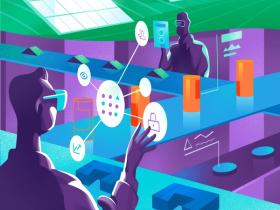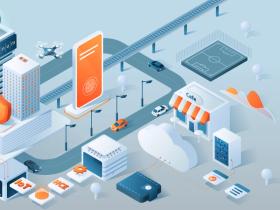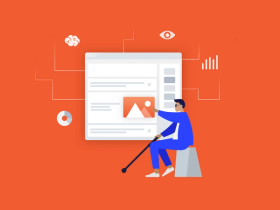How to Develop a Mobile Medical App: Comprehensive How-to Guide
Published: December 29, 2023
35 min read
In this article, you'll learn:
1
❓ How Healthcare Mobile App Development Can Help You Improve Your Services
2
✅ Types of Medical Apps
3
🏃 Our Expertise: WePulse & MoveYoon
4
⚙️ Healthcare Mobile App: Universal Features
5
📚 Legal Compliance & Privacy Policy
6
🤖 Tech Stack
7
💰 How Much Does Digital Healthcare App Development Cost?
8
💡 Takeaways
So, if you're exploring how to make a medical app, whether for development or educational purposes, this article will provide the guidance you need. We have prepared comprehensive information on types of these applications, key features, and healthcare app development stages. We will also tell you about the most suitable technological stack and estimate the approximate cost of mobile medical app development. Let's go!
❓ How Healthcare Mobile App Development Can Help You Improve Your Services
Having an app can help healthcare providers improve their workflow & profitability in many ways.
The most obvious ones are reaching a wider audience, and getting rid of location limitations, language barriers, and other deterring factors.
So let’s take a look at something that doesn’t lie on the surface.
# 1: New Niche
The initiative to start a medical app can change the world, as these apps aid in early cancer detection, stroke risk minimization, and improving life quality for those with chronic illnesses and rare diagnoses.
However, the medical industry still has a lot of slots for new heroes to enter the market with life-changing ideas since many diseases don’t have enough digital and remote resources to help people to deal with them.
So, once your idea enters the market, it will most likely disrupt the industry and be demanded, which will make it easier for you to start making higher revenue, which will then make it easier for you to build a highly scalable business.
# 2: Additional Functionality
It can happen that an existing health application doesn’t cover all of your potential cases.
Such a problem with limited app functionality is often relevant for businesses whose product are made with the help of different “out-of-the-box” mobile health app development services like Fliplet and Appypie that allow you to create a healthcare app by using a template.
✅ Types of Medical Apps
The healthcare sector is highly diverse in its services, with numerous applications targeting different demographics, including starting a women's health tracking app, and healthcare industries. Medical applications can be broadly categorized into four main types:
1. For Patients: These applications do not require specialist involvement but provide valuable health information.
2. For Providers: These applications are designed to meet the needs of hospitals and clinics, such as tracking medication supplies, scheduling nurses, and more.
3. For Doctors: These applications serve as assistants to healthcare professionals, facilitating tasks like prescribing medications or monitoring patient conditions.
4. Appointments: These applications enhance the convenience of scheduling online appointments for both doctors and patients, allowing them to book appointments or procedures.
In this section, we will discuss the most common types of medical applications, with a particular focus on patient-centric applications as they occupy a significant portion of the mHealth market.
If your idea requires unique insights into how to design and develop a healthcare app, feel free to reach out to us for specialized assistance.
App for Patients. Tracking & Reminding
The expertise in how to develop a medical app is vital, as it aids in creating apps that help people track their well-being and ensure timely medication intake.
Let’s take a look at what essential features are often used in such apps.
# 1: Medication Control & Reminders
This feature can help people keep control of their medication regime so that they don’t mistakenly miss the time or confuse the pill.
It's especially relevant for people with chronic illnesses since many of them have to take medications every day and it’s quite complicated to stay focused all the time.
🏃 Our Expertise: WePulse & MoveYoon
In this section, we’ll review two cases of our expertise in this field.
WePulse
One of the projects is WePulse — a corporate well-being platform that’s intended to encourage employees to live healthier lives. We started working with them when our other client HUMANOO, a German corporate health platform, acquired WePulse.
Their team asked us to proceed with the BackEnd development for the mobile app. For health & fitness user data exchange, we’ve integrated 3 fitness services:
Now, they can get all necessary activity data without having to measure it on their own.
MoveYoo
Another project that we’ve worked on is MoveYoo - a German physiotherapy app that allows therapists to remotely prescribe exercises to their patients.
What we did was basically developing the whole app from scratch - we added well-being check-ups, therapeutic exercises with individual plans from doctors, etc.
⚙️ Healthcare Mobile App: Universal Features
In this section, we’ll review features that most types of healthcare apps can have.
# 1: Sign Up & Profiles
For healthcare apps, this feature is something rather necessary since the policies of apps that in some way work in the field of healthcare are way more strict than they are for many other apps.
If we’re talking about general information, email, phone number and name should do it, and you can ask for it before or after the sign-up.
For a better user experience, the payment gateway should:
- Be consistent with different OS types.
- Allow using popular payment methods like PayPal, Google & Apple Pay, a credit card, etc.
- Function fast with no delays.
- Provide strong protection of users’ personal data.
# 6: Customer Support
To help users figure out how to use certain features or deal with simple technical malfunctions, you can add user-oriented customer support.
A good customer support system normally includes:
- A chatbot that will solve simple troubles & pass user requests to specialists.
- Live chat with support specialists.
- FAQ sections with a wide range of pre-answered questions.
- 24/7 phone support for emergencies.
- A list of contacts with mobile numbers for different operators, an email address, links to Social Media, messengers (Viber, WhatsApp, etc.).
📚 Legal Compliance & Privacy Policy
Healthcare apps often have to work with sensitive medical records regarding other people’s health issues, mental problems, private data & information, the stealing of which can lead to an illegal use of it and be traumatizing for people to whom it refers, not to mention that companies that violate these regulations can get penalties, fines, and individuals can press charges against them for doing so.
So, to prevent the leaking of health records and be sure that patient data is stored as securely as possible, you might need to comply with certain privacy and international standards.
Why don’t we review some of the most important ones?
Bear in mind, the regulations may differ depending on where you work or are registered, and with data of which citizens you are dealing with.
# 1: GDPR
General Data Protection Regulation is a privacy & security law of the EU. Its rules relate not only to businesses in the EU but also for anyone who has something to do with the information related to EU citizens.
The first thing you need to keep in mind when working with GDPR is what the definition of “personal data” actually implies, according to this law:
- Name.
- Phone number.
- Location.
- Identification number.
- History of the browser.
- IP address.
- Other kinds of data related to a user's economic, social, mental, physical, physiological, or genetic identity.
🤖 Tech Stack
To make your medical mobile app more functional by using external resources, you can use various APIs and integrations:
- To enable a calendar, you can use these APIs: Google Calendar, Nylas, Zoho, etc.
- For allowing payments in a medical mobile app, take a look at Stripe or Braintree. In fact, we have a whole article about integrating payment systems, in case you want to learn a bit more about it.
- To enable push-notification in a medical mobile app, you can use such APIs as OneSignal, Pusher, etc.
- To provide users with chats, there are many APIs like Sendbird, Stream, Vonage, etc.
By integrating them during the digital health app development process, you can make it faster and reduce the costs.
IoT, BLE & Healthcare App Development
Bluetooth Low Energy (aka Bluetooth LE, Bluetooth Smart) is a digital technology for data transferring, which implies low energy consumption & short range.
But for consumers and providers, this technology is known for the devices that use it in the first place. These are:
- Wearables like fitness bands.
- Smart home devices & others.
💰 How Much Does Digital Healthcare App Development Cost?
The cost of the medical application development will significantly depend on what special features (in other words, what healthcare industry you're operating in) you choose. Here's a rough estimation of what costs might look like.
Since the medical application development is quite a specific topic, the cost will depend on various factors such as the type of application, basic and additional features, and the technological stack. In the table above, we provided approximate time estimates for the development of a specific feature or the implementation of one of the development stages.
Keep in mind that the QA and testing stage will take at least 8% of the total time spent on development.
By estimating the time you will need for the mobile health app development, you can also get an approximate cost. On average, the development of an application will take you 900 – 1 300 hours. We recommend basing this estimate on the average cost of a development team's work, which is $50 per hour.
If you are looking for specialists to develop your own healthcare application, we will be happy to help you! Write to us, and we will discuss all the details.
💡 Takeaways
As you can see, there are many types of healthcare applications, and each one of them is unique. So, be sure that whatever healthcare services you want to provide, you can make use of developing your medical mobile app.
Let’s briefly summarize the steps of healthcare app development process:
- mHealth apps can help you improve your business in several ways: allow using more advanced functionality, reduce the workload on the medical staff, and help you stay connected with your users/patients 24/7.
- There are so many types of digital mHealth apps — they & their features can be combined and form mixed types. Sure thing that the actual number of healthcare app types is significantly higher, but use cases are more specific as well.
- Decide on what features you want to add to your application. There are features that may be suitable for each type of healthcare mobile app those that man particularly suit your type. Just make sure to properly educate yourself on the options first.
- Make sure to determine what regulations you need to comply with so your business is fully legal and secure.
- Find a Tech Partner and start the development! This step doesn’t need to be taken after the previous ones since any development team would gladly help you at any stage of the process.
In case you need any help with the medical app development or have any questions left unanswered, feel free to reach out to us. We’ll find a way to help you!
Was it helpful?
Questions you may have
Take a look at how we solve challenges to meet project requirements
Have you served clients in the medical and healthcare industry?
We have extensive experience in building custom web and app solutions for the healthcare industry. For example, the FitTracks, Feel amazing, WePulse, MoveYoo application. You can find out more details about the development of these applications in this article or by going to the portfolio on our website.
How do you ensure healthcare app compliance with regulations like HIPAA and GDPR?
Of course, we ensure compliance with HIPAA rules, HITECH, FDA, and other local legal requirements. This includes international regulations and local laws to safeguard both the user and the product.
What measures are taken to protect patient data and privacy?
If specific measures aren't detailed, our compliance with HIPAA and GDPR suggests a strong focus on protecting patient data and privacy.
How is patient data secured against data breaches and cyber threats?
Stormotion implements robust patient data security measures to anonymize patient data as part of their compliance with HIPAA and GDPR.
What is your typical healthcare app development process?
We offer platform-agnostic development (iOS medical application development, Android medical app development, desktop, smartwatch, tablet) and technology consulting to ensure the app adapts to market changes.
How are clients involved in decision-making during development?
We value client collaboration, therefore, all decisive issues are discussed exclusively with the client. During the custom app development for healthcare, our app developers is always in touch with the client to quickly resolve and approve certain issues.
Can you provide an estimated timeline for our healthcare app project?
The timing depends on the complexity and functionality of the application. For example, developing a healthcare app can take 900–1300 hours.
What key milestones and deliverables can we expect?
Key stages and results always depend on the specific project and the requests of our clients. In our work we prefer to adhere to the Agile methodology:
- Pre-Project (Discovery Stage, Planning)
- Agile Development (UX-Prototyping, Design, Development, QA & Testing)
- Transition (Maintenance, Handover, Next Iteration)
Can you provide a breakdown of the project budget?
Costs depend on the app type and scope of work. We provide rough estimates for specific types of apps, based on the approximate amount of time spent on development. Write to us and tell us a bit about your project, and we will provide you with more precise figures.
What post-launch maintenance and support services do you offer?
We offer ongoing support, including bug fixes, SDK & API updates, OS updates, and new functionality implementation.
How are updates, bug fixes, and technical support handled?
We provide support for updates and technical issues.. When a new update or bug fix is required, our team assesses the issue, develops the necessary changes, and rigorously tests them to ensure the highest quality. Once validated, the update is released to users. Continuous monitoring and proactive measures are implemented to identify and address potential issues promptly, ensuring the reliability and performance of our services.
Is the app designed to scale as our healthcare practice or business grows?
Yes, we provide technology consulting to ensure growth and adaptability, and specifically design a custom healthcare app to scale as your medical practice or business expands. Our focus is on creating a robust and scalable healthcare solution that can accommodate the evolving needs and increasing demands of your organization over time.
How does it accommodate increased user volumes and data?
Accommodating increased user volumes and data in a medical application involves implementing scalable and robust solutions. Here are several strategies that we employ:
- Scalable Infrastructure - using a scalable infrastructure that can handle increased user loads. Cloud services like AWS, Azure, or Google Cloud provide scalable resources that can be adjusted based on demand.
- Caching Mechanisms - implementing caching mechanisms to store frequently accessed data temporarily.
- Database Optimization - optimizing database queries and structure to handle increased data efficiently. We use indexing, query optimization, and appropriate database sharding techniques to enhance performance.
- Monitoring and Analytics - implementing monitoring tools to track system performance, user behavior, and potential bottlenecks.
- Regular Performance Testing - conducting regular performance testing to identify and address potential scalability issues before they impact users.
Read also

What is Prototyping in IoT and Some Practical Advice

What is IoT Device Management?

How to Make your React Native Application Accessible to ALL, not just to MANY
Our clients say
![Stormotion client Alexander Wolff, CPO from [object Object]](/static/a16ba3c9580effc3ab9a68d115eadffe/b0e74/alex.png)
When I was working with Stormotion, I forgot they were an external agency. They put such effort into my product it might as well have been their own. I’ve never worked with such a client-focused company before.
Alexander Wolff, CPO
Sjut
